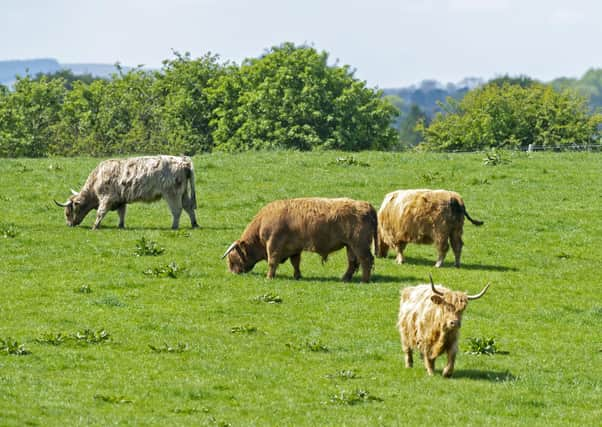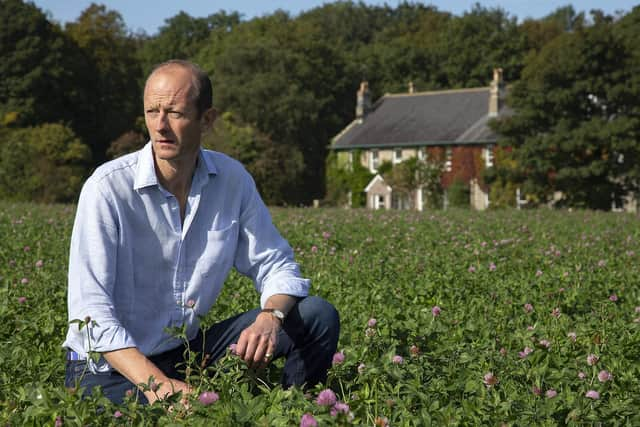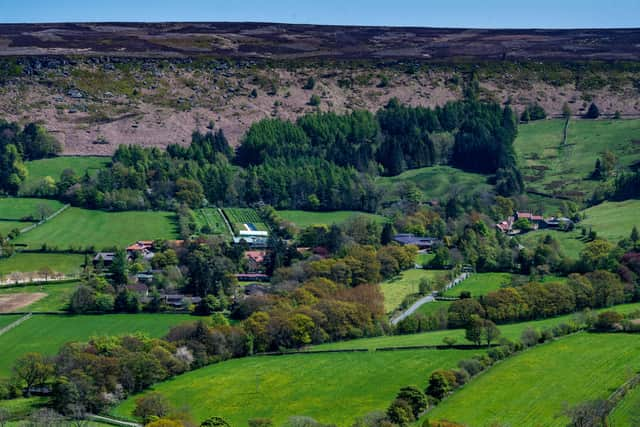Agriculture Bill’s sting in the tail for our farmers – Mark Bridgeman


Much of the Government’s agenda is commendable, notably tying payments to the provision of environmental and other public goods.
But there is a sting in the tail: sharp cuts in the phasing out of direct payments will start in six months, and there is still no clarity on how the new system, the Environment Land Management scheme (ELMS), will work in practice.
Advertisement
Hide AdAdvertisement
Hide AdIt will take four years before it is available to more than a very limited number of farmers involved in pilots.


Yet the Common Agriculture Policy (CAP), of which the Basic Payment Scheme or “direct payments” are a part, has been in place for more than 40 years in various iterations.
These direct payments are simple to manage, but they have been tainted by poor targeting and value for money.
The new policy will replace these payments with “payments for public goods”: payments for managing land in a way that is good for the environment, heritage and public access. Other programmes will help farmers improve productivity and enhance animal health and welfare.
Advertisement
Hide AdAdvertisement
Hide AdThis is not a small change. Direct payments account for around 58 per cent of the average farm business income, broadly equivalent to profit. This rises to 70 per cent for beef, sheep, cereals and mixed farms. Only 25 per cent of farming enterprises are profitable without these payments.


The replacement of the CAP, set out in the Agriculture Bill, has a lot of good points, but the timing of the change is such that there will be cuts in payments four years before the aforementioned ELMS scheme is widely available in 2024.
Farmers could lose up to 50 per cent of their direct payments by 2024; for some there might be room to tighten their belt and do things differently, but for many others is means risk of failure, particularly among small, tenanted farmers, or larger farms who have financed innovation and growth through debt, and new entrants.
The farming industry is the foundation of the UK food industry and the Covid-19 outbreak has underlined their role in an adaptable and resilient supply chain.
Advertisement
Hide AdAdvertisement
Hide AdSo it is vital that the sector is helped to adapt, and that reform proceeds in a manageable way. This is not about stopping change, but giving farming businesses the time to adapt and make what could be profound changes.
The CLA is supportive of the new agricultural policy, but it is vital that thought is given to the cumulative impact of the planned cuts in the first phase of transition. It was initially the case that farmers would have more than two years’ notice before direct payments were cut. It is now likely that farmers will have less than six months’ notice. In agricultural planning time, this is not nearly long enough.
The Government must look at how it can minimise the risk of viable businesses failing due to short-term cashflow problems. The CLA believes that no farming business should see their direct payments cut by more than 25 per cent before the Government’s new ELMS scheme is available to all.
Defra also needs to set out, for each individual farmer, what the funding profile of the transition will look like, so they can plan. This will give farmers the information they need to adapt — something that Brexit and now the coronavirus pandemic has made more difficult.
Advertisement
Hide AdAdvertisement
Hide AdThough farming has continued during lockdown, tourism and recreation, which provide crucial additional income for diversified farming businesses, have suffered; more than two-thirds of all farm businesses have diversified income streams, making up almost a quarter of their overall profit.
The Agriculture Bill has sensible goals at its heart. And the CLA recognises the need for change in the sector. But farmers – the people carrying out this change who have been classed as key workers to ensure safe and sustainable food is produced to feed the nation – must be heard.
Getting the transition away from the CAP right is crucial, so that we can have an industry that can thrive and not be plunged into crisis.
Mark Bridgeman is president of the Country Land and Business Association. This piece first appeared on the ConservativeHome website.
Advertisement
Hide AdAdvertisement
Hide AdEditor’s note: first and foremost - and rarely have I written down these words with more sincerity - I hope this finds you well.
Almost certainly you are here because you value the quality and the integrity of the journalism produced by The Yorkshire Post’s journalists - almost all of which live alongside you in Yorkshire, spending the wages they earn with Yorkshire businesses - who last year took this title to the industry watchdog’s Most Trusted Newspaper in Britain accolade.
And that is why I must make an urgent request of you: as advertising revenue declines, your support becomes evermore crucial to the maintenance of the journalistic standards expected of The Yorkshire Post. If you can, safely, please buy a paper or take up a subscription. We want to continue to make you proud of Yorkshire’s National Newspaper but we are going to need your help.
Postal subscription copies can be ordered by calling 0330 4030066 or by emailing [email protected]. Vouchers, to be exchanged at retail sales outlets - our newsagents need you, too - can be subscribed to by contacting subscriptions on 0330 1235950 or by visiting www.localsubsplus.co.uk where you should select The Yorkshire Post from the list of titles available.
Advertisement
Hide AdAdvertisement
Hide AdIf you want to help right now, download our tablet app from the App / Play Stores. Every contribution you make helps to provide this county with the best regional journalism in the country.
Sincerely. Thank you.
James Mitchinson
Editor
Comment Guidelines
National World encourages reader discussion on our stories. User feedback, insights and back-and-forth exchanges add a rich layer of context to reporting. Please review our Community Guidelines before commenting.